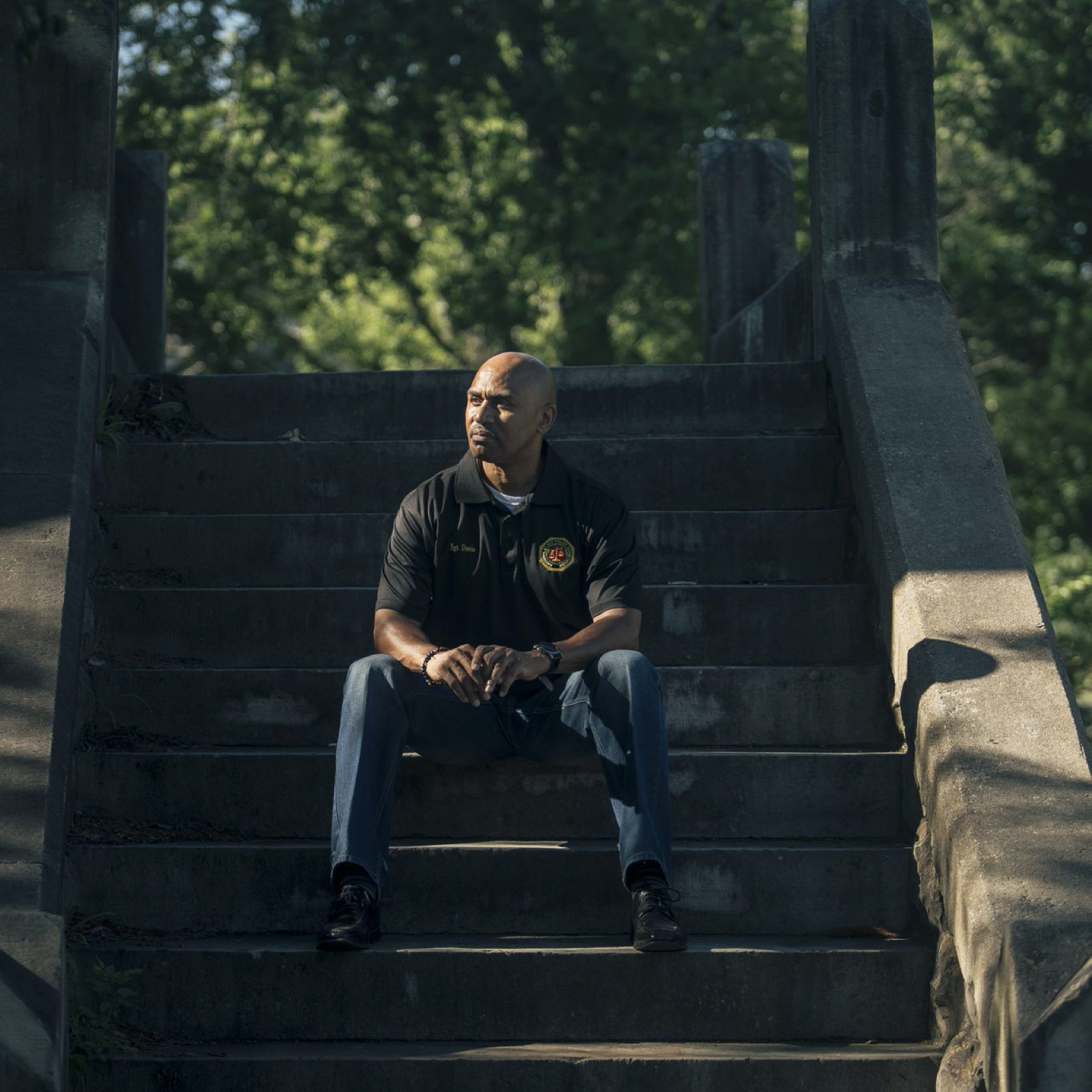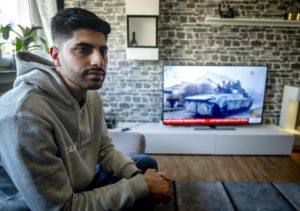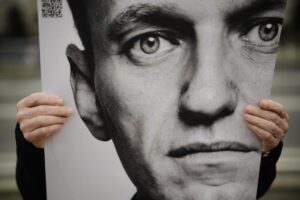In lawsuits and interviews, African-American officers say they have been victims of ‘the same hell’ as many who have been mistreated by law enforcement
Detective Luther Hall was working undercover during protests that gripped St. Louis in 2017 following the police shooting of a black man, when several officers in riot gear rushed up to him.
Before Mr. Hall, who is black, could comply with their demands to get on the ground, he was body slammed by an officer, according to court filings. The 22-year veteran said the white officers punched, kicked and struck him with batons before a SWAT team member recognized him and hustled him away. Mr. Hall later told investigators that his fellow officers “beat the [expletive] out of him like Rodney King,” according to a Federal Bureau of Investigation affidavit.
Though Detective Hall’s case, which has led to federal criminal charges against the officers involved, is extreme, black officers across the country say they commonly face harassment, discrimination and even abuse from their own departments, according to interviews and court filings.
Many black officers said they understood the anger behind nationwide protests initially sparked by the killing of George Floyd. Not only does law enforcement need to change how they police minority communities, these officers said, but departments also need to change how they treat their own minority officers.
“The same hell that black people were experiencing on the streets, we were experiencing inside the department,” said Eric Adams, who retired from the New York Police Department as a captain in 2006. Mr. Adams, who is now Brooklyn borough president, said the dynamic hasn’t changed.
NYPD First Deputy Commissioner Benjamin Tucker, also black, said that the department had transformed its approach to race since he began his career there in 1968, when most officers were white. About 53% of the NYPD’s uniformed force is now nonwhite, according to department statistics. Census data shows that about 68% of New York City residents are nonwhite.
But Mr. Tucker said more attention to racial issues within the department was needed, especially after the uproar over Mr. Floyd’s death.
African-Americans have taken leadership positions in numerous large police departments across the country over the past 20 years. Still, nationwide, the number of black officers has stayed steady at about 11%, according to the U.S. Bureau of Justice Statistics.
The Wall Street Journal has identified nearly two dozen lawsuits or settlements involving black officers who alleged discrimination against departments across the country over the past three years.
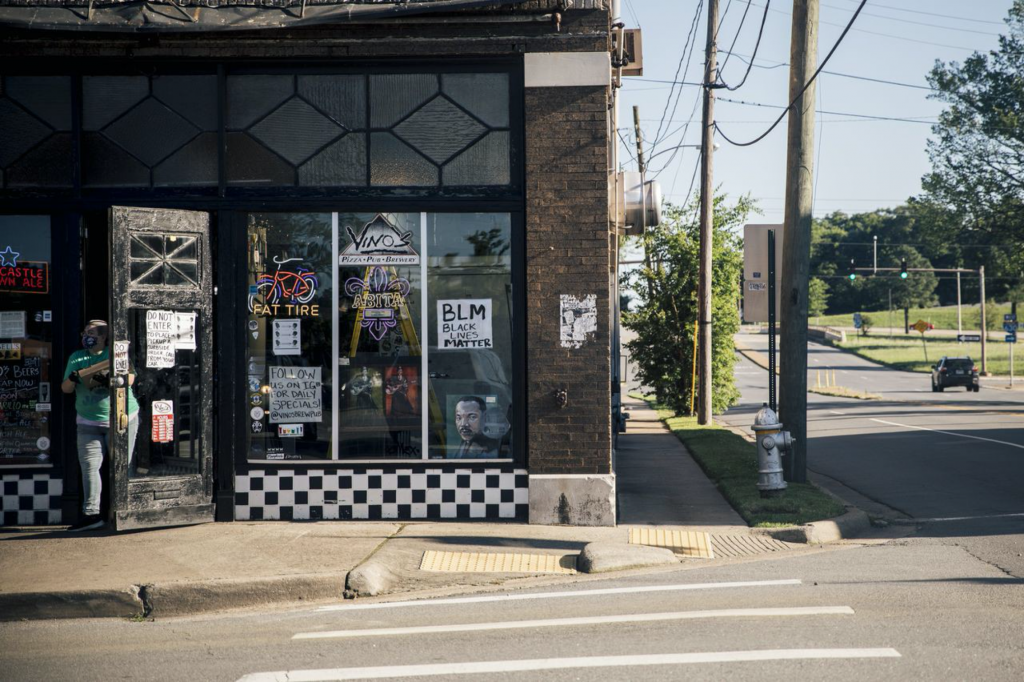
In one 2018 federal discrimination lawsuit, several black officers in Arkansas with the Little Rock Police Department alleged white colleagues openly used racial slurs, harassed black citizens and unfairly disciplined black officers. The city, whose current and prior police chiefs are both black, settled the lawsuit in February for $200,000 without admitting wrongdoing.
Sgt. Willie Davis, a plaintiff in the suit, said black officers didn’t always trust white commanders to take action if they reported misconduct.
“Officers who look like me learn early that if you keep your mouth shut, you’ll be fine. So you develop this attitude of ‘going along, to get along,’” he said.
Sgt. Davis said he was now uncomfortable encouraging the black youth he mentors to go into law enforcement.
“I wouldn’t want them to endure what I see,” he said.
Little Rock Police Chief Keith Humphrey said that the majority of his officers—white and black—were “amazing.” But he said a small group of white officers had stoked racial tensions within the department and caused problems for black colleagues.
San Francisco Police Department Captain Yulanda Williams joined the force in 1990, hoping to improve relations between police and minorities. Last May, she sued the city and the Police Department, alleging she’d been targeted by white co-workers and supervisors for speaking out against racism and sexism.
Co-workers harassed Ms. Williams for her Afrocentric hairstyle, according to the complaint, and a supervisor told her she needed to choose the police over her identity as a black person. “Pick a side. You seem confused about this,” the supervisor said, according to the complaint.
Ms. Williams said trying to change the culture in the department was “like trying to turn the Titanic.” SFPD officials declined to comment.
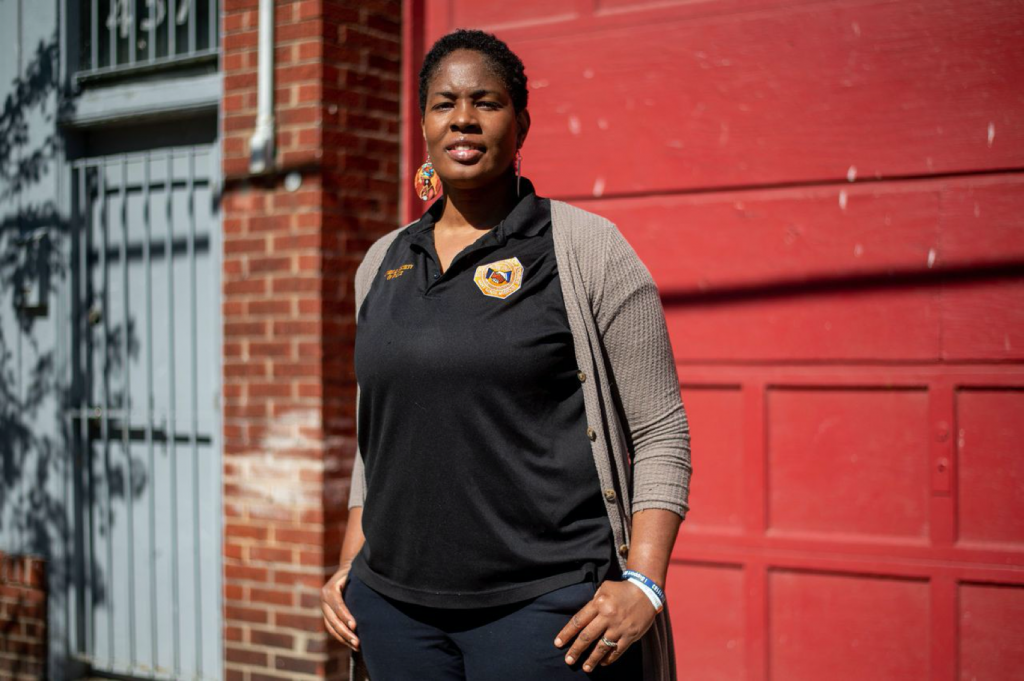
Heather Taylor, a supervisor with the St. Louis Metropolitan Police Department’s homicide division, is president of the Ethical Society of Police, a black officers’ group. Ms. Taylor said racism continued to afflict the department, where about 30% of the roughly 1,200 member force is black. About 47% of St. Louis residents are black.
In one recent incident, Ms. Taylor said a white police dispatcher referred in a social-media post to people protesting Mr. Floyd’s death as “animals.” In a second recent incident, a black officer found a note in a precinct cabinet that read “Hitler rules,” she said.
“Undeniably, there is racial tension among our ranks,” said St. Louis police Chief John Hayden, who is black, adding that new antibias training will examine officers’ interactions and decisions.
Ms. Taylor said Detective Hall’s case showed the difference in how police often treated African-Americans in St. Louis. Mr. Hall had a white undercover partner who was unharmed despite also being arrested during the protests, according to court filings.
“The Police Department makes it clear: When it comes down to it, you will be shown that you’re black first,” Ms. Taylor said.
A federal grand jury indicted five St. Louis police officers on charges related to Mr. Hall’s beating and for trying to cover up what happened. Two pleaded guilty and are awaiting sentencing. The other three have pleaded not guilty. A lawyer for one of the officers said his client was innocent.
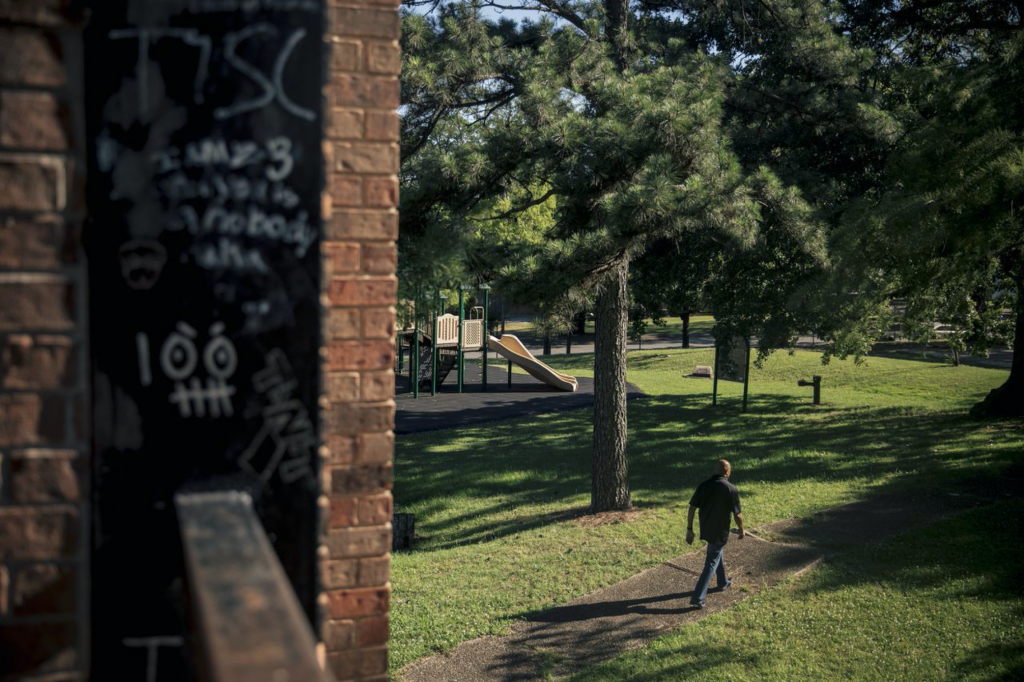
Mr. Hall declined to comment through his lawyers.
Some senior black law-enforcement officials said prejudice was ingrained in white colleagues who had little experience with black people outside of law enforcement.
Charlie Smith, an African-American former Bureau of Alcohol, Tobacco, Firearms and Explosives top official who retired in 2017, said he’d grown inured to racism during his career. On his first day as an ATF agent in 1987, Mr. Smith said a fellow agent asked him “How does it feel to get this job only because you’re a [racial slur]?” Twenty years later, now a SWAT commander, he recalled being pulled over while off-duty by white officers and handcuffed because they thought he matched a suspect’s description
Mr. Smith said that too often, white police officers viewed black neighborhoods as dangerous places filled with bad people, a sentiment echoed by other black officers.
In a 2015 study of smaller Northeastern police departments by the National Association of Black Law Enforcement Officers, 91% of 102 officers surveyed said that racial profiling existed within their agencies. Seventy percent said that police supervisors and administrators condoned the practice, the survey found.
Last week in Little Rock, a young, black detective invited fellow police officers to join a peaceful protest to show solidarity with minority communities. When Chief Humphrey arrived, he was dismayed to find only four white officers showed up compared with 21 black officers, he said.
“Those white officers who showed up…they did some reflecting and said ‘You know we need to do a better job, and we get it,’” Chief Humphrey said.
Asked why he thought more white officers didn’t join, he said, “Some of it is fear. Some of it is ‘I don’t give a damn.’ Some of it is ‘Well, I don’t live in this city so it’s not my problem.’ Some just don’t know what to do.’”

